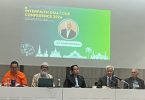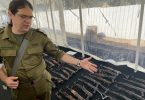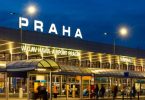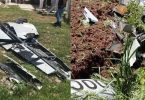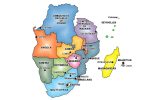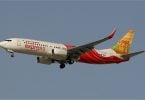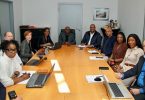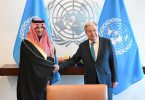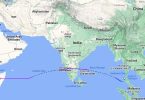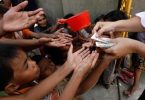Flores island, one of the Lesser Sunda Islands in Eastern Indonesia, covers 6,627 sq. mi. (17,164 sq. km.) of heavily wooded, rugged, and mountainous terrain. Flores is known and attracts most of its tourists for being an access point to Komodo National Park, a World Heritage Site and marine protected area (MPA), that sits just to the west.
Because of its connection to the park, and increasingly because of its other unique ecological attractions, such as diving and the volcano Kelimutu, Flores has seen a huge growth in tourism. The number of annual visitors to Flores has more than doubled in the past five years.
NUMBER OF VISITORS TO INDONESIA, BALI, AND FLORES BY YEAR
Indonesia
2005: 5,002,10
2006: 14,871,351
2007: 5,505,759
2008: 6,234,497
2009: 6,323,730
2010: 7,002,944
2011: 7,649,731
Bali
2005: 1,386,449
2006: 1,260,317
2007: 1,664,854
2008: 1,968,892
2009: 2,229,945
2010: 2,576,142
2011: 2,788,706
Flores
2005: 19,442
2006: 20,105
2007: 22,978
2008: 26,043
2009: 42,281
2010: 48,818
2011: 49,593
In areas of Indonesia and other parts of world where tourism has caused rapid development, there is widespread poverty, low levels of education, an increased rate of diseases, depletion of natural resources, destruction of the natural environment, and the extinction of cultural heritage. In these instances, such as in Denpasar on Bali, development has been stimulated by a “quick buck” or “easy dollar.”
Flores is now on the cusp of either following a similar kind of destructive development model, or consciously working along a sustainable path. Although still in the early stages of development, much change has already occurred in the port town of Labuan Bajo, the primary hub of visitor activity on the island. In the past ten years, Labuan Bajo’s population has grown exponentially, and ghetto communities have spread along the main road and bay. Trash covers the coastline there, education is very limited, and local health care is sub-standard where available.
Fortunately, these destructive impacts of tourism can be avoided and even reversed where there is local awareness, consensus, commitment, and cooperation towards sustainability, working in harmony with foreign-based support. Two characteristics of Flores make it a prime place to capitalize on the global trend of ecotourism: 1) it is in the early stages of development, and its most impressive features and popular attractions are ecological sites; and 2) it has many local individuals and organizations that are committed to sustainable development.
THE ECO FLORES NETWORK
Need
The present and future economy on Flores is undoubtedly dependent on tourism. At the same time, the health and vibrancy of the island’s communities will determine its ability to host and support a kind of tourism that is in harmony with the local culture and environment. Eco Flores began in 2010, out of a need to connect those interested in the long-term sustainability of Flores, and to fill gaps in both resources and understanding among them. At present, there are numerous locally-initiated and foreign-initiated organizations and individuals working towards sustainability. In many cases, initiatives work in parallel rather than in cooperation, or worse, there exists a level of tension between local and foreign initiatives working towards the same aim.
Waecicu Eden Beach Hotel, Waecicu Bay, Flores
There are benefits and shortcomings in both the strictly local and the heavily foreign-based initiatives. The advantages of community-initiated projects are wider community support and cooperation; good community mobilization; ease of getting community participation in decision making, meetings, programs, activities; and ease of working with other stakeholders. Down sides include a more limited scope of work, a limited ability to spread models to build capacity at a pace that can suitably counter development concerns, and resistance to partnering with outside support. The benefits of outside-initiated projects include opportunities to gain awareness, knowledge, skills, and funds, particularly for isolated communities. This was also seen as helpful to assisting government needs. Weaknesses in this approach included organizations pushing their own interests; little understanding of communities’ situations, needs and aspirations; misinformation causing communities to have high expectations; not being well versed with community protocols when going into communities; and perhaps most importantly, lack of continuity. In short, foreign ideas and expectations need to be managed, while local communities need to be challenged to manage the resource of foreign support.
Mission and overview
Eco Flores is a non-commercial, non-political, and non-religious network that connects those interested in the long-term sustainability of the Flores economy, environment, and cultures. The ultimate aim is to catalyze and promote cooperation and sharing of expertise in all fields relating to sustainability on Flores, by way of three main goals: 1) defining present and future sustainability issues on Flores; 2) identifying local and international initiatives working for the sustainability of Flores, and facilitating cooperation and sharing of expertise among them; and 3) connecting sustainability efforts across Flores to foster sharing of experiences, challenges, resources, and best practices.
Eco Flores has already connected with nearly 200 organizations, businesses, professionals, scientific experts, and local community organizers who are committed to sustainability in the following fields: ecotourism, water management, waste management, green energy, agriculture, fisheries and marine management, forest management, community development, disaster risk Reduction, and cultural heritage. Eco Flores believes that sustainability is connected to all levels, areas, and fields of social and economic exchange, and thus its content is defined a bit like open software. It is completely free to public use, and users constantly edit and define its content (i.e., its participating members of individuals and initiatives).
It is important to note that although Eco Flores has already connected to so many areas and types of initiatives, that each of these connections can be traced by personal connections directly back to Eco Flores Founder, Nina van Toulon. The Network has grown organically from the seed of one individual’s concern, taken root in the community’s shared concern and need, and branched across Flores, Indonesia, and the world.
Eco Flores publicizes local sustainability initiatives, as well as funding needs on its website ( www.ecoflores.org ). As well, its volunteer Project Staff and Coordinators, they will work on a one-on-one basis to facilitate awareness and cooperation in the field.
Structure and future
Currently Eco Flores is run entirely by volunteers: Founder, Nina van Toulon, and three Regional Coordinators (East, West, and Central-Manggarai) manage the Network’s activities with other volunteer support staff from Flores, other parts of Indonesia, the Netherlands, Australia, England, and Hawaii.
Eco Flores also consults with an Advisory Board of experts, each with over 20 years of fieldwork on Flores, or in related fields in Indonesia.
Most of the research, planning, and coordination of initiatives has been heretofore conducted by its Founder. In the future, however, Eco Flores will depend on the employment of at least part-time, paid Regional Coordinators. These Coordinators will serve as the main points of contact, and will keep track of and stay current with Flores sustainability initiatives, document the initiatives’ status and needs, assess gaps and issues, and seek solutions and professionals to fill gaps and resolve issues. These positions are now filled on a voluntary-basis. Eco Flores is currently seeking advice on how best to pay Coordinators for their work, while maintaining good faith from the community and the spirit of personal responsibility, from which the network was born.
Nina van Toulon, Founder/Ibu
Nina van Toulon, Founder of Eco Flores, has been traveling to Indonesia for over 20 years, initially with the dream of someday moving to Bali. Her vision changed as she witnessed Bali’s urban sprawl and environmental destruction. In 2010, she shifted her focus and bought land along Waecicu Bay on Flores, with the hopes of building a small ecohotel with twelve rooms that could support her and provide employment to young people from Bali who have come to call her “mom.” As she planned to move to Flores from the Netherlands, she soon became concerned as she watched Labuan Bajo rapidly develop, and the surrounding land deteriorate in just one year. At the same time, she began working with local community organizer Papa Joe, to publicize his work with Plasticman, a volunteer initiative working to recycle Labuan Bajo’s plastic waste.
After witnessing the amount and type of development that occurred in Labuan Bajo between 2010-2011, Nina felt that working with individual local groups towards sustainability was no longer enough – that such efforts needed to come together and mobilize to change the course of development on Flores.
No newcomer to advocacy and humanitarian work, Nina founded an orphanage fund in Ningbo, China 1993-1997, in coordination with the Hong Kong Society for rehabilitation, to build capacity in conductive education for orphanage employees, and to renovate the Ningbo orphanage. As well, she is a local organizer for educational and green initiatives in her hometown in Enspijk, Netherlands. Although she is officially the founder of Eco Flores, on Flores she is most often referred to as “Ibu” (Indonesian for “mother”).
Eco Flore Conference
To foster participation in and awareness of the network, as well as catalyze consensus and cooperation in various fields, Eco Flores will host the Eco Flores Conference in Labuan Bajo, September 27-29, 2012. The conference will gather mostly individuals working in various fields of sustainability on Flores, as well as experts from across Indonesia and around the world. Participants will share and discuss methods, challenges, and opportunities in creating a sustainable future for Flores.
The three-day conference will open with abbreviated keynote speeches touching on various topics of sustainability, with speakers including former Indonesian Minister of Environment. The second half of day one will be devoted to an Initiative Fair in which individuals and organizations will be able to publicize and present their work to all conference participants. Day two will consist of a morning clean up activity, followed by meetings of small working groups facilitated by one local moderator with the support of a professional/academic resource person. Each working group will have no more than 15 participants and cover one of the following topics: ecotourism, health, LMMAs, mining, waste management, water management, cultural heritage, agriculture, wildlife conservation, forestry, green energy, women’s issues, and community development. Groups will discuss and complete a work packet that will require the documentation of needs, issues, educational leads and strategies, and, finally, an action plan. Working groups will meet again during day three. At the end of day three, all conference participants will join for a closing, in which group representatives will prepare their findings and action plans.
More on Eco Flores at: http://www.ecoflores.org/



